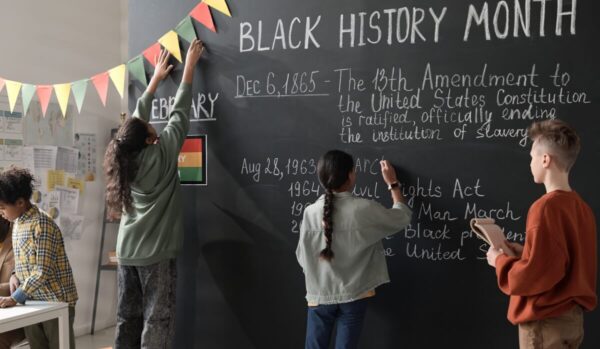It’s often said that Black history is American history. If that’s so, it should be thoroughly taught in schools across the United States. But it’s not.
Most states don’t require that Black history be taught in public schools.
The College Board, a nonprofit organization that develops curricula for K-12 and higher education systems, has attempted to inject Black history into high schools throughout the country by developing the framework for an Advanced Placement African American Studies (APAAS) course.

The board rolled out the pilot course for the 2022-2023 academic year, marking the first time the organization offered an ethnic studies course in its 120-plus year history.
However, designing curricula for African-American studies to be taught in public schools has proved to be one of the most scrutinized and politically divisive subjects in education, and increasingly so in the past year.
That initial APAAS framework drew criticism from some conservative groups and elected officials who said, among other things, that the AP course sought to indoctrinate students to a political agenda. The state of Florida went so far as to ban the course.
The College Board announced a revised framework in time for the start of Black History Month last year that would become available for the 2023-2024 school year. This drew criticism from previous supporters who felt key elements of Black history and Black identity had been removed due to political pressure.
This attack on Black history began as backlash to the 1619 Project, followed by a repudiation of critical race theory (CRT) in the wake of the police killings of George Floyd and Breonna Taylor, as well as the political division sowed during the 2020 presidential election.
As a result, numerous states passed laws banning the teaching of CRT in schools and banning books on Black history. Additionally, conservatives won school board seats to root out “wokeness” and CRT. Republican governors began championing anti-wokeness in Virginia, Tennessee, Alabama, Mississippi, and Texas. But none has done so with such vigor and tenacity as Florida Gov. Ron DeSantis.
DeSantis’ administration rejected history and math textbooks (yes, even math), citing CRT as the reason. His administration also updated its own Black history standards, saying “slaves developed skills which, in some instances, could be applied for their personal benefit.”
About APAAS, DeSantis said that the course “significantly” lacked educational value — because topics and lessons on ideas such as intersectionality, white supremacy and racial capitalism are considered too “woke” for the classroom.
In December 2023, the College Board, which is perhaps best known for administering standardized tests such as the SAT, released another revision to the APAAS course framework, set for launch in the 2024-2025 school year.
This time, the board reinstated topics that confronted anti-Black racism — previously deemed too “woke” by political conservatives.
According to Brandi Waters, senior director and program manager for APAAS, the organization chose to reinstate topics that it agreed were essential to being historically accurate.
“After we heard clear and principled criticism that the second version of the course framework designated far too much essential content as optional, including some of the foundational concepts, we decided to revise the framework in response to this critique, and also to feedback from students and teachers in the course… No revisions were made to any versions of the framework at the request or influence of any state,” Waters said to Education Week in December.
Nearly 700 high schools across 40 states are currently participating in the final pilot round of the course. That’s roughly 13,000 students.
But even with a course like this, there’s still a danger looming. That danger is two-fold.
First, APAAS will not be available to all high school students. Second, students who take the course and pass it may never take a similar course in college. They won’t have to.
AP courses end with students taking a final exam, and a high enough score on the exam earns students college credit for the course. In other words, students won’t have to take a similar class in college. And if students choose not to, they’re likely missing out on the expertise and depth of knowledge a college professor would bring to the subject.
But even with the best-equipped high school history teachers, all students wouldn’t have the opportunity to take the APAAS course.
According to the U.S. Department of Education’s Office of Civil Rights, only 6 percent of all public school students take advanced placement courses. Black students make up 9.5 percent of all AP students, which amounts to only 4 percent of the total population of Black students nationwide.
Black history instruction shouldn’t only be available to a small percentage of America’s youth. But evidently, if some had their way, it wouldn’t be taught at all. When APAAS officially launches at high schools this fall, even with its limited reach, expect the battle for telling America’s history to continue.


